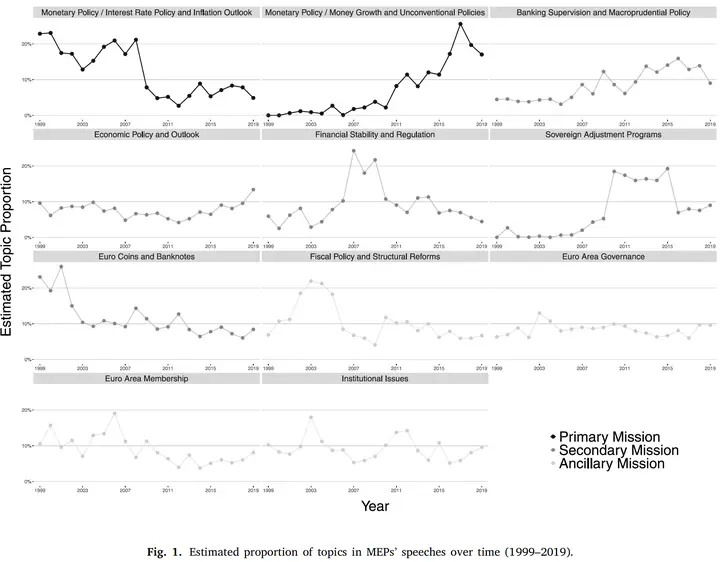Political voice on monetary policy: Evidence from the parliamentary hearings of the European Central Bank
 🇪🇺 Political voice on monetary policy 🏛️
🇪🇺 Political voice on monetary policy 🏛️Abstract
Previous scholarship on central bank accountability has generally focused on monetary authorities’ deeds and words while largely ignoring the other side of the accountability relationship, namely politicians’ voice on monetary policy. This raises a fundamental question: what are central banks held accountable for by elected officials? To answer this question, we employ structural topic models on a new dataset of the Monetary Dialogues between the Members of the European Parliament (MEPs) and the President of the European Central Bank (ECB) from 1999 to 2019. Our findings are twofold. First, we uncover differences in how MEPs keep the ECB accountable for its primary, price stability objective. We show that European politicians also attempt to keep the central bank accountable for a broader set of issues that are connected with, but distinct from, the central bank’s primary goal. Second, we show that unemployment is a key explanatory variable for the political voice articulated by individual MEPs in accountability settings. In particular, higher rates of domestic unemployment lead MEPs to devote less voice on issues related to the ECB’s primary mission. These findings reveal the existence of a “political” Phillips curve reaction function, which enriches our understanding of the principal–agent accountability relationship between politicians and central bankers.